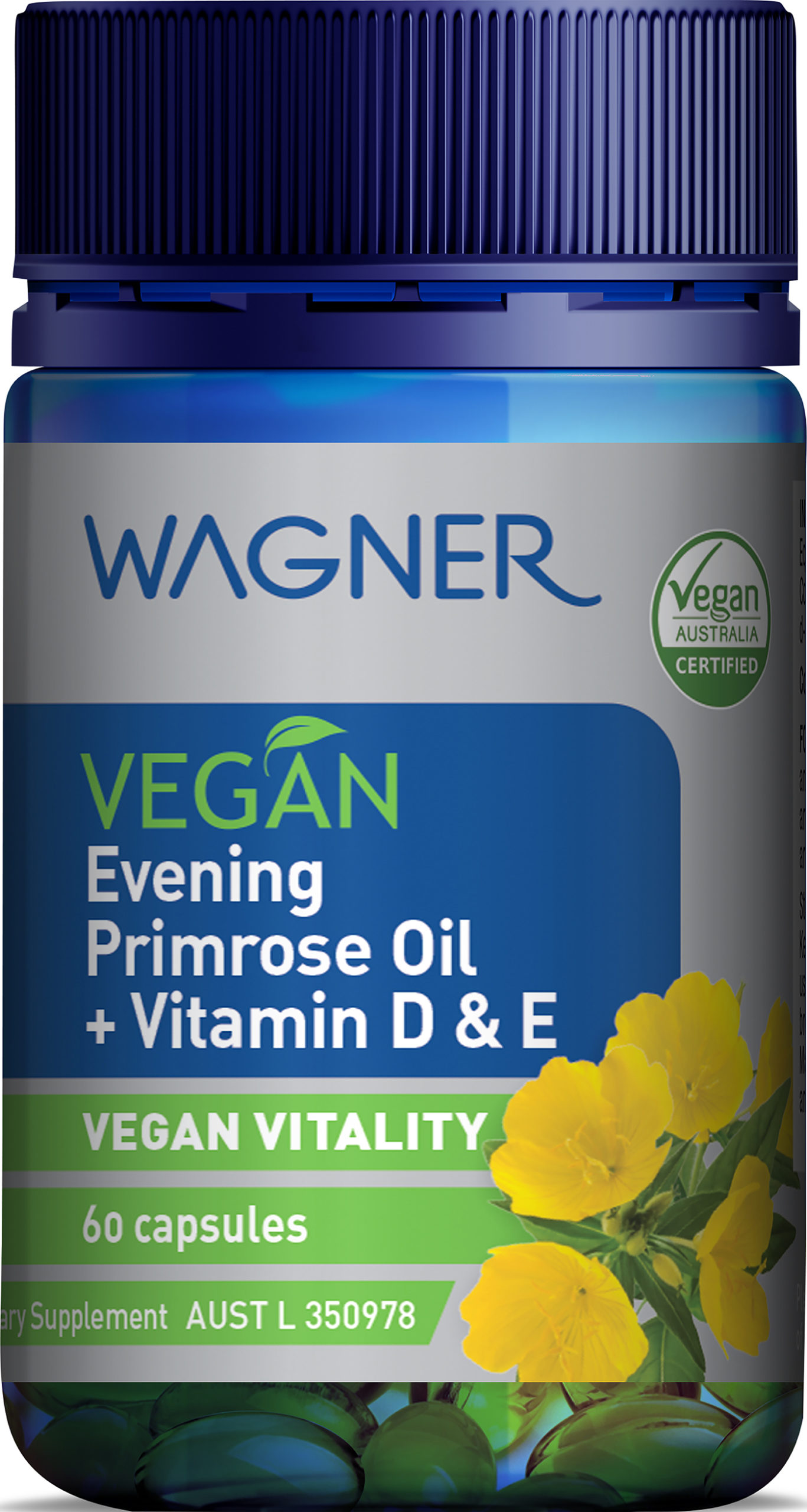
Features
Evening primrose oil is a good source of Linoleic acid (LA) and gamma-Linolenic acid (GLA) Omega-6 fatty acids, which help to support general health and wellbeing
Contains Vitamin D to support calcium absorption and Vitamin E which has antioxidant properties
Vitamin D is good for people who limit their exposure to sunlight and may have an increased need for Vitamin D supplementation
Supports skin health and skin integrity
Supports female healthy hormone balance
Supports symptoms of premenstrual tension
Is created for Vegans and Vegetarians
Precautions and contra-indications:
Always read the label and take only as directed Not recommended for use by pregnant and lactating women
Vitamin supplements should not replace a balanced diet
If symptoms persist, consult your healthcare professional
Formulated without:
Gluten, wheat, animal products, dairy products, egg, artificial colours, artificial flavours, artificial sweeteners or preservatives.
Contains: Soya bean products.
Recommended Adult Dosage:
Take 1-3 capsules daily with food or as directed by your healthcare professional.
Each capsule provides
Evening primrose oil 500mg
Equiv. Linoleic acid 325mg
Equiv. gamma-Linolenic acid 50mg
Colecalciferol (Vitamin D3 300IU) 7.5 micrograms
d-alpha-tocopherol (Vitamin E 22IU) 14.77mg
Encapsulating aids.
FAQ
Q1 What is Evening primrose oil, and how can it support wellbeing?
A1 The Evening primrose plant (Oenothera biennis) is native
to North America; and several Native American tribes have
used it for centuries.
More recently, scientists have found that the oil pressed
from the plant’s seeds is rich in important essential and
conditionally essential Omega-6 fatty acids. Your body
uses these fatty acids – Gamma-Linolenic Acid (GLA) and
Linoleic Acid (LA) – to produce hormone-like compounds
called series-1 prostaglandins. These compounds
help to regulate several of your body’s functions, which
helps to maintain your general health and wellbeing.
Additionally, Evening primrose oil (EPO) may help to
maintain your skin’s natural moisture levels. This may be
why EPO has traditionally been used to help with dry, itchy
skin conditions.
Q2 What are conditionally essential fatty acids?
A2 Fatty acids are nutrients that your body needs in much
the same way as it needs vitamins. There are several
types of fatty acids, and they’re categorised in two ways.
Firstly, fatty acids are divided according to whether your
body can manufacture them on its own or not. If the body
can manufacture them they’re called “non-essential”,
and if it cannot they’re called “essential”. However, some
fatty acids don’t fit neatly into either group. Your body can
only make certain fatty acids from essential fatty acids –
which must be sourced from your diet. Fatty acids in this
group are known as “conditionally essential”.
Secondly, unsaturated fatty acids are grouped into
“Omega” families according to their chemical structure.
Omega-3 fatty acids are found in oily fish and linseed oil.
Omega-6 fatty acids are found mostly in plant-based oils
and certain nuts & seeds, and Omega-9 fatty acids are
found in olive oil and nuts such as peanuts.
Q3 What is Vitamin D, and what roles does it play in your body?
A3 Vitamin D is a compound that your body creates when
the cholesterol in your skin is exposed to the UVB rays in
sunlight. Once the Vitamin D is manufactured, your body
uses it in a wide variety of ways to help maintain your
general health and wellbeing.
Most people are aware that Vitamin D helps to maintain
strong, healthy bones. It does this by helping your body to
absorb – and then use – Calcium; the mineral that helps
to give bones their strength and density.
Vitamin D also helps to maintain normal levels of Calcium
in the blood, which is important for the normal
development and maintenance of bones and teeth.
In addition to supporting bone health, Vitamin D plays a
host of other roles. For example, this nutrient has been
shown to support the health and function of the immune
system and nervous system.
Q4 Why do some people need extra Vitamin D?
A4 While Vitamin D is present in some foods, it tends to
occur in very low levels. That’s why sunlight is generally
known as the best natural way to support levels of this
nutrient in the body. Vitamin D is mainly produced in our
skin by a reaction that requires sunlight. People who
limit their exposure to sunlight may have an increased
need for vitamin D supplementation.
However, not everyone can meet their Vitamin D needs
through sunlight alone. If your job requires you to spend
most of your time indoors, or you’re housebound, you
may need to top up your Vitamin D levels.
